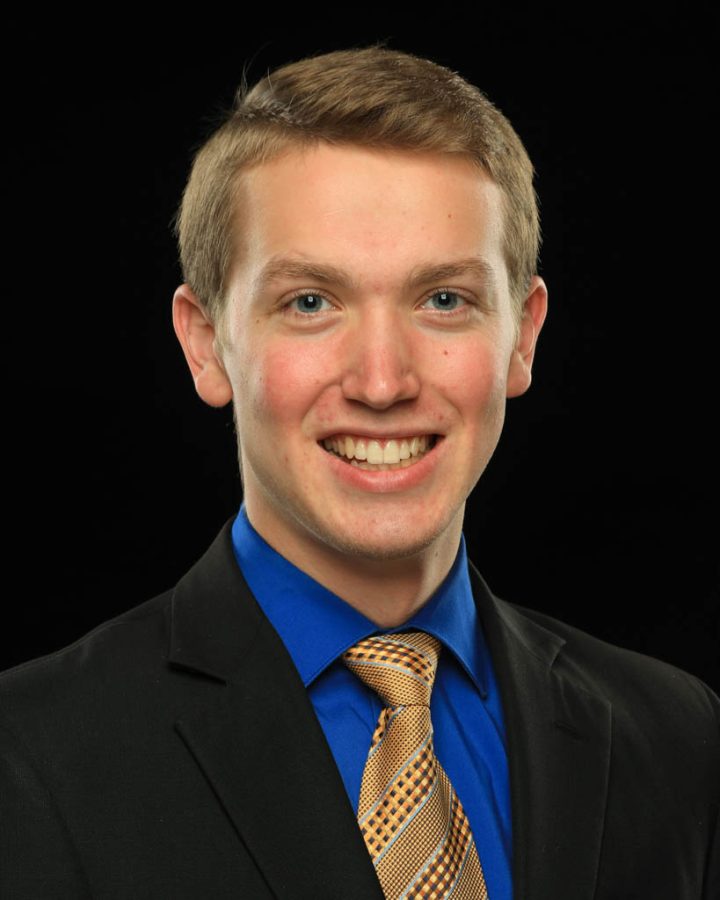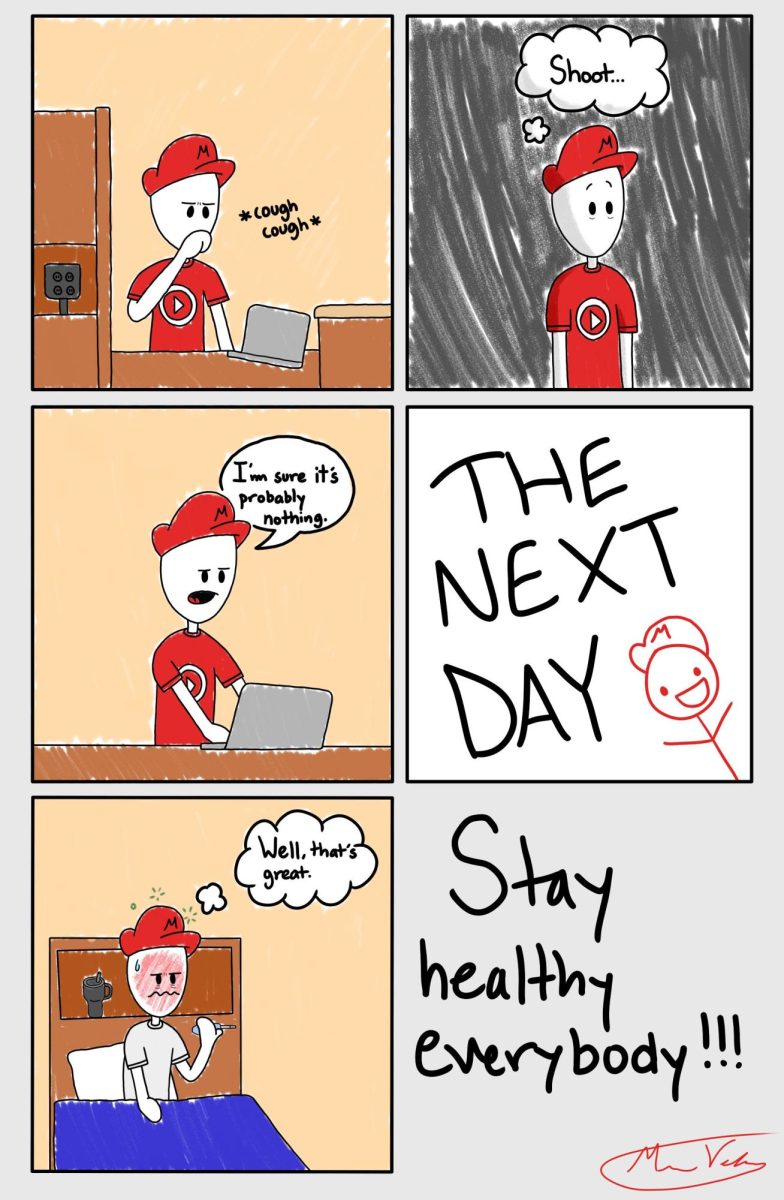Tautologies — sayings that are true by definition, such as, “triangles have three sides,” — are notoriously unhelpful, according to my English textbook. But my younger brother Micah once coined a tautology that has helped me a lot. “You see what you are looking at,” he said.
Such a statement seems simplistic, yet it dramatically shifted my outlook on life.
We see the things that we look at, as opposed to the myriad of potential distractions. For example, look at a word on this page, and then, without moving your eyes, try to read the words nearby. Your ability to read surrounding words plumets exponentially within just a few degrees of your focus point.
Take another example. While walking between classes, we might notice the people who seem distracted, distressed, discouraged or depressed. We might see the cracks snaking across the sidewalks or weathered paint marking the crosswalks. We might notice the architecture of the buildings or the contours of the landscaping.
Or we could turn our eyes to the skies and become wonderstruck by the sky-scraping clouds.
Of course, we could also bury our face in our phone and miss it all.
What we choose to focus on determines what we see, which affects how we feel. So, if we want to start feeling different, we need to start seeing the spots we’ve overlooked.
Learning to intentionally direct what I look at and think about became very important last summer, when I received a phone call from the police department at 2:51 a.m. The officer informed me that my mother had been hit by a drunk driver while driving home. “It was a fatality,” the officer said.
This news upended my life and threatened to send me on a darker path. But by God’s grace, I focused on remembering the blessings of having Mother for 21 years, instead of ruminating over the burdens of life without her now.
I like to go running in the morning at sunrise, reveling in the mesmerizing vista unfolding above me. The golden sky reminds me of God’s promises, just as each new morning encouraged the lamenting poet 2,700 years ago:
“This I recall to my mind, therefore have I hope.
It is of the Lord’s mercies that we are not consumed,
because his compassions fail not.
They are new every morning:
great is thy faithfulness” (Lamentations 21-23).
The poet in Lamentations found hope because he chose to ponder the promises of God instead of the problems plaguing him.
You see what you are looking at. Because we naturally notice evidence that confirms our expectations, our choice to search for something creates a self-fulfilling prophecy.
I like to say that an optimist sees the good in every situation. A pessimist sees the bad. A realist sees the good and the bad. But a cynic sees only the bad, even in the good. Don’t be a cynic.
Choosing not to focus on the negative is not a cop-out. Logistically, we could never see all the bad in the world, no matter how hard we tried. I highly discourage trying.
On the other hand, we should proactively look for ways to help those around us. Some people across the world face things we will never know about, and that’s okay. But people across the hallway face things we never bother to ask about, and that’s not okay.
Since we have limited emotional capabilities, we should ration our negative feelings so we have enough to empathize with the people whom we can genuinely help. Then we should help. Romans 12:15 commands, “Rejoice with them that do rejoice, and weep with them that weep.”
For issues we are powerless to solve, we ought to leave our emotional burdens with the God who can solve them.
To feel different about life, we need to become intentional about what we focus on in life. To change our outlook, we must change where we look.




























































